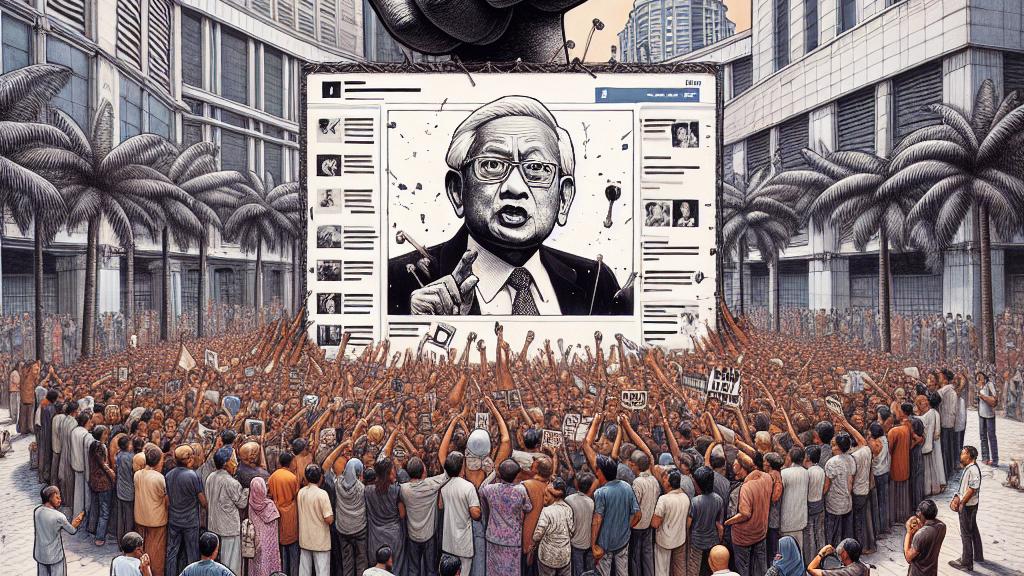Meta in Hot Water: Malaysia's PM Calls for Answers and Apologies!
Overview
- Malaysia's Prime Minister Anwar Ibrahim demands a public apology from Meta after the removal of his Facebook posts about Palestine.
- Meta's actions have been labeled as unjust censorship, undermining free expression in Malaysia's political landscape.
- This incident is sparking a larger debate about content moderation policies and transparency on social media platforms.

Incident Overview: Context and Repercussions
In a significant political clash in Malaysia, Prime Minister Anwar Ibrahim faced a setback when several of his Facebook and Instagram posts were removed by Meta. These posts included condolences for the assassinated Palestinian leader Ismail Haniyeh and strong messages of support for the Palestinian struggle. Following this removal, the Prime Minister's Office (PMO) expressed profound discontent, condemning Meta's actions as a threat to free speech and a politicized censorship effort. Given Malaysia's history of support for Palestine, this incident resonates deeply within the national consciousness and raises immediate concerns about the integrity of social media as a platform for political dialogue.
Malaysian Government's Firm Response
In reaction to Meta's move, the PMO demanded a detailed explanation and a public apology. Officials characterized the removal as not only a violation of free expression but also as indicative of a broader discrimination against political figures expressing views on contentious issues. Prime Minister Anwar had previously accused Meta of acting in favor of oppressive regimes, which added fuel to the fire of public sentiment against the tech giant. This demand for accountability emphasizes the increasing scrutiny on social media platforms regarding their content moderation policies, especially in contexts involving political discourse and human rights advocacy.
Broader Implications for Social Media Governance
This incident serves as a critical reflection on the role of social media in modern governance and civil discourse. It compels stakeholders, including governments, activists, and tech companies, to reconsider how content is moderated and the implications of such actions on public figures and political expression. The Malaysian government's stern stance could indicate a growing trend where nations call social media platforms to account for their policies, potentially leading to demands for regulatory frameworks that ensure fair treatment in content moderation. As the world grapples with issues of censorship and digital rights, this case illustrates the ripple effects that decisions made by tech companies can have on international relations and domestic politics.

Loading...